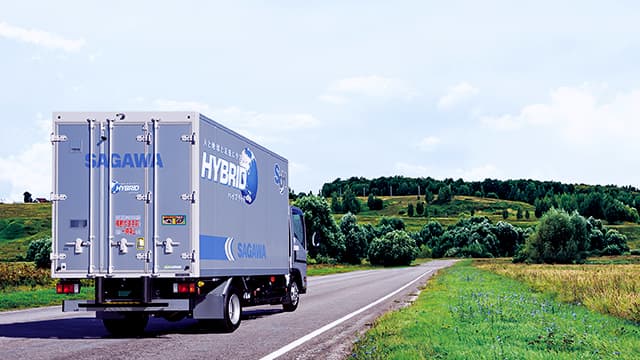Materiality and KPIs
In conjunction with the launch of the new Mid-Term Management Plan, and as detailed below, the Group has revised Materiality, which are important management issues, for the realization of our Long-Term Vision of “Grow the new Story. New logistics, nurturing a new society together.” aimed at 2030, as well as the enhancement of our corporate value over the medium- to long-term.
Background of Materiality Establishment
Since it was founded in 1957, the Group has constantly considered what it can do for customers, and has had the corporate philosophy of “Trust, Create, Challenge” with the “Hikyaku no Kokoro” (the spirit of Edo-era express messengers) to do its best in its heart. In addition, using the Material CSR Issues, etc. established in FY2017 as a guideline and to meet the expectations of stakeholders, we have worked to resolve a variety of social issues through business activities with the aim of creating new value.
Meanwhile, the speed of changes in the environment surrounding companies has been accelerating, causing the issues that they must address to become more diverse and complex. In international society, for example, action on social issues, including measures to address climate change, are being increasingly demanded. Against this backdrop, and with the aim of fostering both a sustainable society and sustainable growth for the Group, we declared a Long-Term Vision of “Grow the new Story. New logistics, nurturing a new society together.” aimed at 2030, and to realize this vision and enable the Group to increase its corporate value over the medium- to long-term, we established Materiality, which are important management issues, in FY2023. For FY2025, the first year of the Mid-Term Management Plan “SGH Story 2027,” we have revised Materiality to reflect recent developments in the business environment and changes in our management resources and stakeholders due to the integration of the Meito Transportation, Hutech norin, and Morrison into the Group. With these revisions, we will be pursuing an even more sustainable approach to management.
Positioning of New Materiality
In the previous Mid-Term Management Plan “SGH Story 2024,” we specified 10 key strategies as Materiality, but with the formulation of “SGH Story 2027,” we conducted a review and established a new version of Materiality. We determined it by backcasting from our vision, positioning Materiality as issues to be solved toward the realization of our Long-Term Vision. Meanwhile, we have positioned the Mid-Term Management Plan as an activity plan for resolving the issues.
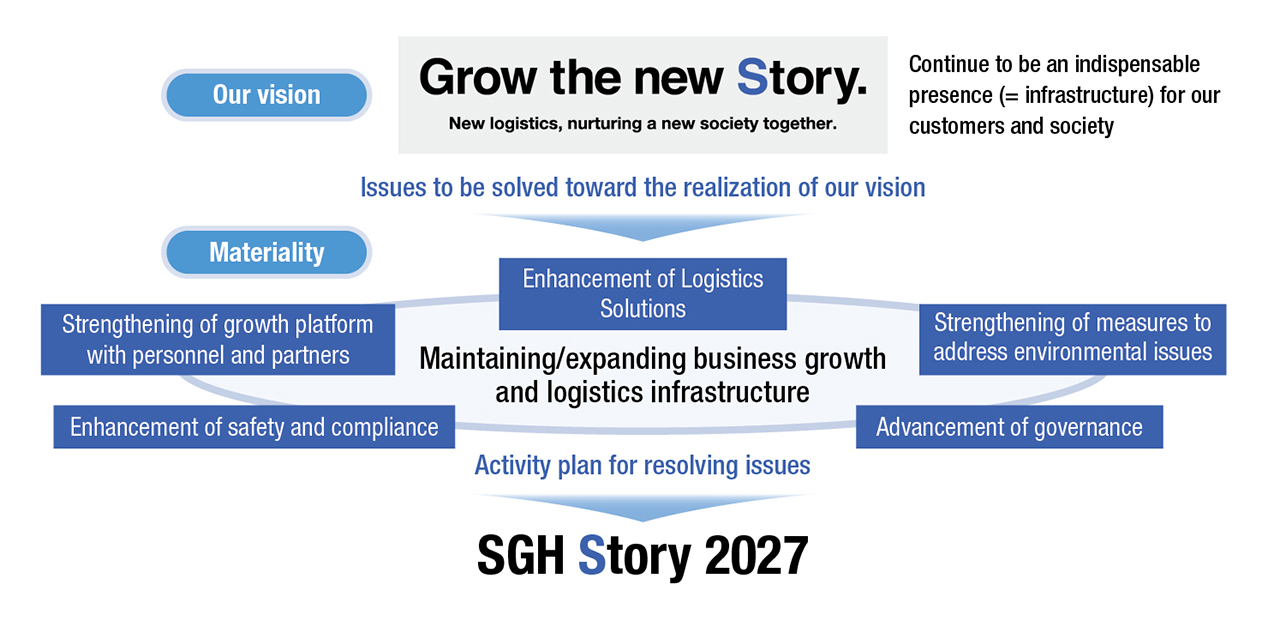
New Materiality Determination Process
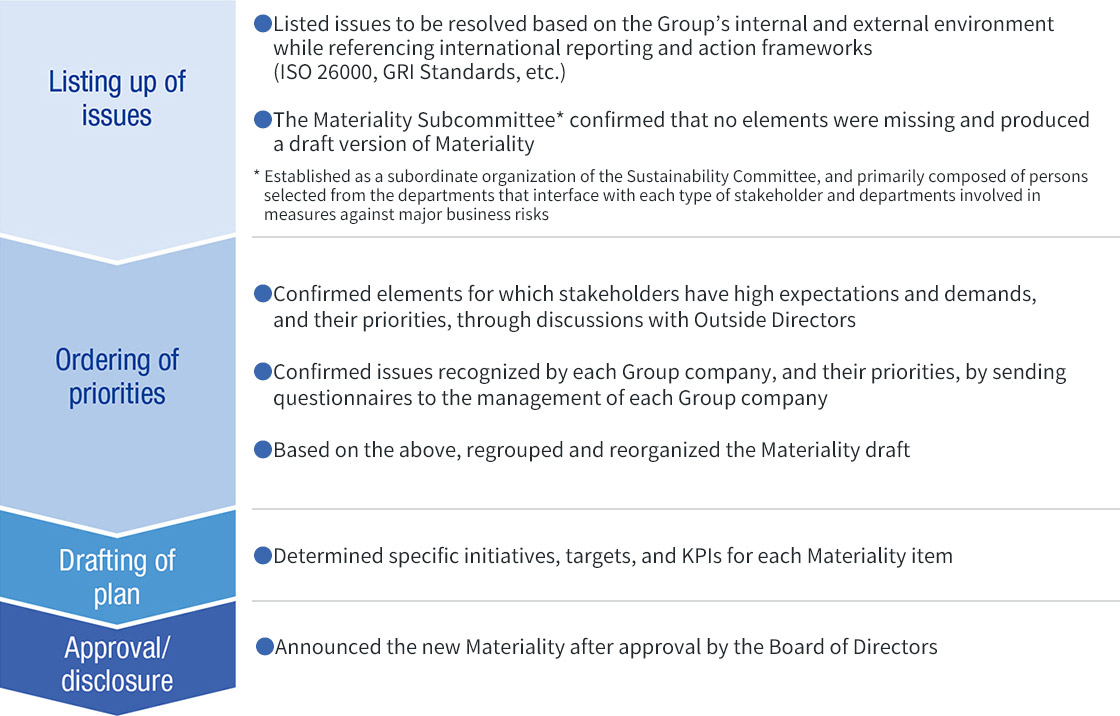
Our View of the External Environment
In recent years, the external environment surrounding the Group has become increasingly complex, with rapid changes occurring in our business environment. Domestically, labor shortages have become severe, and accelerating operational efficiency improvements on the assumption of wage increases and inflation going forward has become an urgent task for all companies.
Meanwhile, the global economy is expected to see medium- to long-term growth, necessitating proactive approaches toward overseas business expansion.
PEST Analysis
- Leadership changes in Japan and the U.S. (changes in global supply chains due to policy changes such as tariffs)
- Intensification of U.S.-China tensions
- Increased geopolitical risks due to ongoing wars and conflicts in various countries
- Upcoming implementation of the Act Against Delay in Payment of Fees, etc. to Small and Medium-sized Entrusted Business Operators in Manufacturing and Other Specified Fields
- Revision of the Act on the Protection of Personal Information
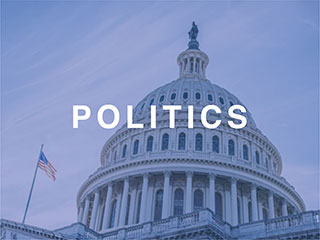
- Medium- to long-term growth of the global economy
- Rises in Japanese short- and long-term interest rates
- More extreme foreign exchange volatility
- Wage increases and acceleration of inflation
- Shift from experiential consumption to live-in-the-moment type consumption among younger generations
- Launch of emissions trading system
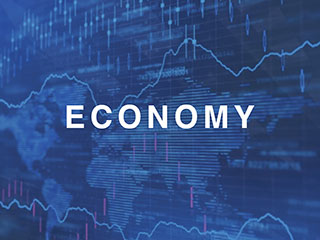
- Serious labor shortages due to Japan’s population decline, aging society, and the 2024 problem
- Increased inbound demand due to relaxation of entry restrictions, diversification of consumer needs, and greater diffusion of e-commerce
- Growing demands for management with awareness of cost of capital
- Growing demands for disclosure of non-financial information including that related to ESG
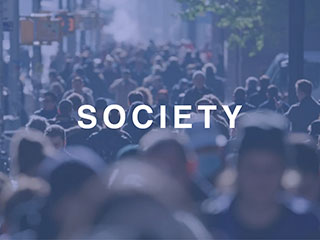
- Full-scale proliferation of generative AI
- Evolution of communication standards such as 5G and 6G
- Increased EV adoption globally
- Development of environmentally friendly technologies
- Advancement of business transformation across various industries through DX
- Increased information security risks


Social issues we must particularly focus on
- Transformation of consumption activities (diversification, increased fluidity, globalization)
- Addressing climate change (Emission reduction, etc.)
- Decline in Japan’s working population → Increased risk of inability due to fewer delivers
- Compliance, product (service) safety, and consumer protection
- Balancing job satisfaction and economic growth
- Corporate transparency and accountability
New Materiality and KPI list
Materiality Management Method
For the KPIs set for each Materiality item, we will monitor progress alongside the key strategies of the Mid-Term Management Plan “SGH Story 2027,” and when deviations have occurred in achievement levels, we will analyze the reasons and consider countermeasures. KPI monitoring is conducted by the Sustainability Committee, which will disclose its findings annually. If changes have occurred or are expected to occur in Group policies and measures due to changes in the internal or external environment, we will consider resetting Materiality initiatives, targets, and KPIs as appropriate.
Progress in FY2025/3
| Large category | Sub category | Reason for selection, purpose | Major initiatives | KPI | Results for FY2025/3 |
|---|---|---|---|---|---|
| Enhancement of comprehensive logistics solutions (GOAL®) | (1) Promotion of services aimed at solving social and environmental issues such as decarbonization | The Company recognizes that there is an increasing need for the Company to respond to various social issues, such as climate change, the increasing severity of disasters, and the declining birthrate and aging population. Through the logistics solutions provided by the Group, we aim to reduce the burden on society and the environment by helping our customers build supply chains that are more sustainable and also give more consideration to the global environment. | · Reduction of GHG emissions of the Company and customers (senders) | Reduction rate of Scope 1+2 emissions (vs. FY2013) * FY2024 target: 15% reduction |
· Reduction of Scope 1+2 emissions: 22.0% reduction vs. FY2013 · 3.4% reduction compared to the previous year due to an increase in the renewable energy implementation rate, etc. |
| Renewable energy percentage in electric power used * FY2030 target: 40% |
· 56.4% renewable energy percentage (+8.7 points year on year) (preliminary value) (FY2030 target will be reset in accordance with the revision of the decarbonization vision) |
||||
| Percentage of environmentally friendly vehicles (total of EVs, FCVs, HVs, CNG and clean diesel vehicles) * FY2030 target: 98% |
· 92.1% environmentally friendly vehicles (+15.1 points year on year) | ||||
| · Consideration of new services and businesses aimed at the resolution of social and environmental issues | Promotion of initiatives aimed at the creation and expansion of new services and businesses | · Expanded cooperating local governments for large appliance collection service(156 local governments, +45 year on year, as of April 1, 2025) · Expanded partnerships with local governments, including comprehensive partnership agreements, disaster agreements, and monitoring agreements (cumulative total of 719 agreements as of April 30, 2025) · Started providing disaster prevention solutions in cooperation with Mitsui Sumitomo Insurance Company, Limited |
|||
| (2) Expansion of TMS/3PL networks and enhancement of ancillary solutions | Customers are demanding more advanced logistics solutions due to a declining workforce, evolving technology, and the diversification of their services. By strengthening functions and proposal capabilities in “areas other than express package delivery services,” we will expand our proposal areas and services to the entire supply chain of our customers. | · Expansion of TMS projects · Increased TMS usage rate by existing customers |
TMS net sales * FY2024 target: 120.0 billion yen |
· TMS net sales: 124.9 billion yen (110.5% year on year) · Steady increase through proposal-based sales using GOAL®, etc. |
|
| (3) Strengthening international and overseas services | We will respond to the expansion of international cargo volumes against the backdrop of medium- to long-term growth of the global economy, by strengthening global and overseas services, including cargo to and from Japan. We will contribute to the expansion of our customers’ international business and increase the Group’s volume of goods in the last mile. | · Expansion of share of existing customers · New lanes, expansion of industries |
Operating revenue of Expolanka * FY2024 target: 136.0 billion yen |
· Operating revenue of Expolanka: 216.2 billion yen (189.9% year on year) · Both unit price and handling volume exceeded the plan due to the impact of the avoidance of the Red Sea passage and other factors, as well as favorable price negotiations and new acquisitions |
|
| (4) Improvement of profitability through enhancement of service and improvement of efficiency in express package delivery service | In the express package delivery services business, which is an important operating base for the Group, we will maintain the operating base and achieve sustainable business growth by improving services and profitability through the implementation of investments aimed at improving capacity in anticipation of market growth and improving the efficiency of our operations. | · Development of new services, strengthening of services peripheral to express package delivery services · Expansion of sales in new areas |
Packages handled * FY2024 target: 1.38 billion |
· Number of packages: 1.32 billion (95.9% year on year, the figure before the change in the scope of data collection) · Fell below target due to weaker consumer sentiment and an increasingly competitive environment |
|
| · Initiatives to receive appropriate freight tariffs | Average unit price * FY2024 target: 662 yen |
· Average unit price: 662 yen (+14 yen year on year, the figure before the change in the scope of data collection) · Increased due to revisions to reported tariffs from April 2024 and efforts to receive appropriate freight tariffs for each transaction |
|||
| · Improvement of efficiency of express package delivery services | Operating margin of Delivery Business * FY2024 target: 7.7% (Expected to decrease from the previous year due to the accumulation of expenses related to the 2024 problem including those in partner companies) |
· Operating margin of Delivery Business: 6.8% (-1.1 points year on year) · Decreased due to higher unit prices for outsourcing and additional expenses to maintain employee salary levels · Started a “doorstep delivery” service for leaving packages on the doorstep and nationwide expansion of pickup at post offices to improve customer convenience and reduce redelivery of packages |
|||
| Expansion of management resources leading to the creation of competitive advantages | (5) Strengthening domestic and overseas transportation network including alliances | In an environment of a shrinking workforce and aging drivers, we will maintain and expand our domestic transportation and delivery network by strengthening alliances with diverse partners. Overseas, we plan to expand revenues by leveraging alliances with leading local partners. | [Japan] Strengthening of relationships with partner companies and expansion of support system |
· Expansion of SAGAWA Partner Program · Holding meetings to promote appropriate transactions |
· SAGAWA Partner Program enhanced communication with partner companies and improved convenience by adding services and functions on the dedicated website · Continuously held meetings to promote appropriate transactions and set up regular communication opportunities with partner companies |
| [Overseas] Expansion of alliance partners associated with sales strategy |
· Expansion of alliance partners | · Decided to integrate Morrison into the Group to expand our business areas and customer base (completion of share acquisition on May 20, 2025) | |||
| (6) Investment in human capital and improvement of employee engagement | In order to expand businesses other than express package delivery services (such as TMS, 3PL and global businesses), which are growth drivers in the 2030 Vision, it is necessary to acquire and train solution personnel such as global personnel and DX personnel. We will expand the human resource base to “create a competitive advantage for the next generation” by fostering a corporate culture that allows for new challenges. | · Development of management personnel and personnel able to propose solutions · Realization of diverse work styles, flexible promotion of personnel |
· Implementation of training, etc. aimed at the development of management personnel and solution personnel · Promotion of work style reform measures |
· Implementation of management development program, Seminars for Newly Certified GMs, Women’s Career Support Training, training to develop solution personnel (GOAL®, global, and DX personnel), etc. · Ongoing implementation of internal committees, seminars, etc. to promote DE&I |
|
| · Periodic monitoring of employee engagement indicators · Planning and promoting initiatives based on monitoring results |
· Affirmative response rate for questions regarding “employee engagement” * FY2024 target: 57% · Affirmative response rate for questions regarding “creating an environment that makes good use of employees” * FY2024 target: 55% |
· “Employee engagement”: 55% (-1 point year on year) · “Creating an environment that makes good use of employees”: 53% (±0 points year on year) · Although the above Group-wide results have not yet improved, about 80% of operating companies received higher evaluations than the previous year for actions taken after the last survey. Planned actions for improvement in FY2025 after analyzing the results for each operating company |
|||
| (7) Creation of competitive advantages through investment in DX | In addition to a shrinking workforce and evolving technology, express package delivery services are likely to face a different competitive environment than in the past against the backdrop of factors such as the diversification of customer services. By combining technology with the Group’s resources, we will realize DX and expand services that can solve various issues faced by society and our customers. | · Promotion of measures through three aspects (strengthening of services, improvement of efficiency of operations, evolution of digital infrastructure) · Development of personnel handling DX planning |
· Promotion of services and measures through DX strategy · Promotion of DX planning personnel development activities |
· Promoted joint demonstration experiment of an AI-equipped cargo loading robot with Sumitomo Corporation and Dexterity · Signed a strategic partnership agreement with Google Cloud Japan to enhance integrated logistics functions through the use of DX · Conducted basic and applied training to develop DX personnel |
|
| (8) Creation of new value through open innovation | We will create new value by combining the unique services of start-ups and companies in different industries with the Company’s resources, without being constrained by the knowledge and values within the Group. | · Hosting accelerator program and strengthening of systems aimed at the creation of new businesses | · Promotion of activities aimed at the creation of new businesses and services | · In the open innovation programs, seven partner companies presented co-creation ideas, two of which were selected as collaboration ideas to proceed to the demonstration experiment phase | |
| Further advancement of governance | (9) Creation of governance structure that meets global standards | As a publicly listed corporate group, all Group companies, both domestic and international, will strive to enhance their governance and compliance, which is the fundamental foundation for achieving transparency and credibility of their activities to their stakeholders. | · Strengthening of international legal functions, strengthening of governance of overseas subsidiaries · Establishment of systems and promotion of education aimed at strengthening of preventative legal work and compliance |
· Strengthening of governance meeting global standards, promotion of initiatives aimed at advancement of compliance | · Continued activities to strengthen internal control systems of overseas Group companies · Established and developed domestic and international preventive legal systems (personal information protection, compliance with the Subcontract Act, etc.) · Ongoing implementation of security education, harassment education, etc. |
| (10) Ongoing advancement of compliance |
- <For printing> FY2024 Targets and Results for Materiality (Key Strategies of the Medium-term Management Plan) KPIs (196KB)
- <For printing> FY2023 Targets and Results for Materiality (Key Strategies of the Medium-term Management Plan) KPIs (2472KB)
- <For printing> FY2022 Targets and Results for Materiality (Key Strategies of the Medium-term Management Plan) KPIs (550KB)




